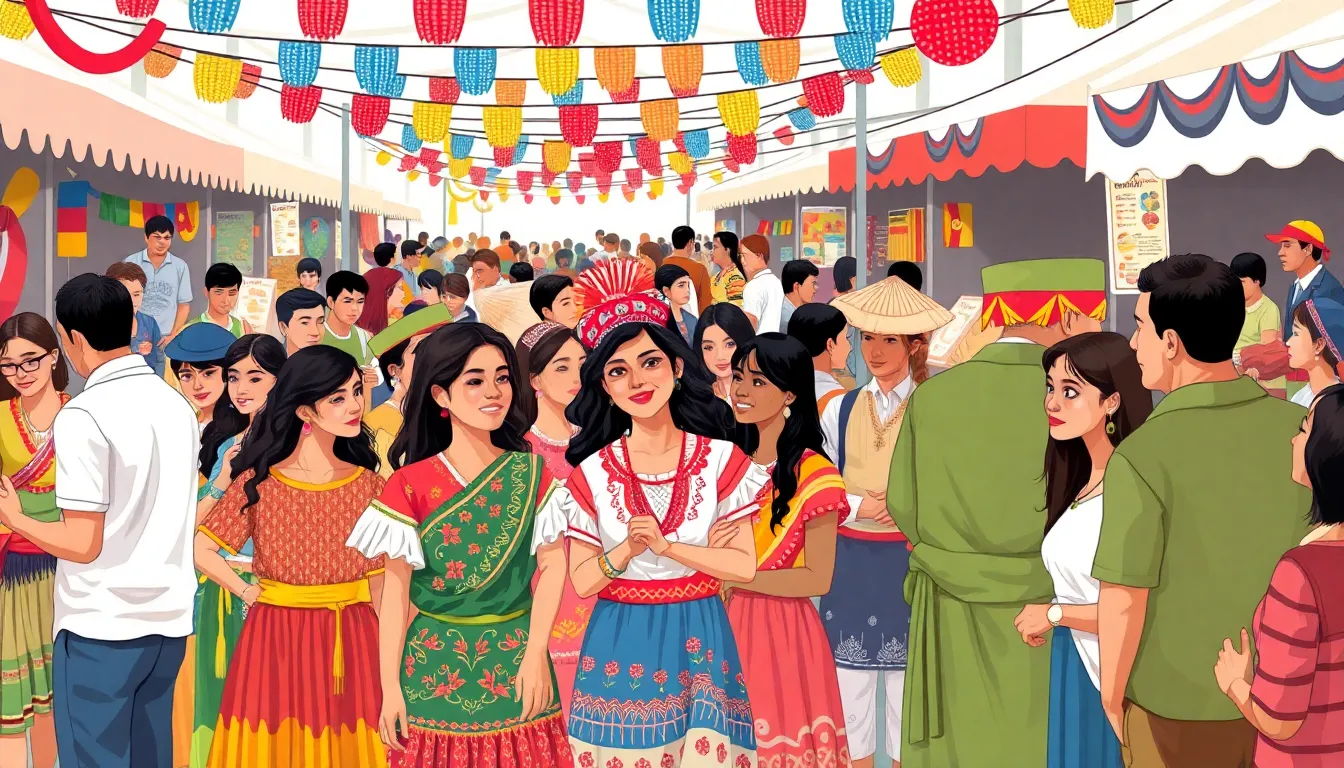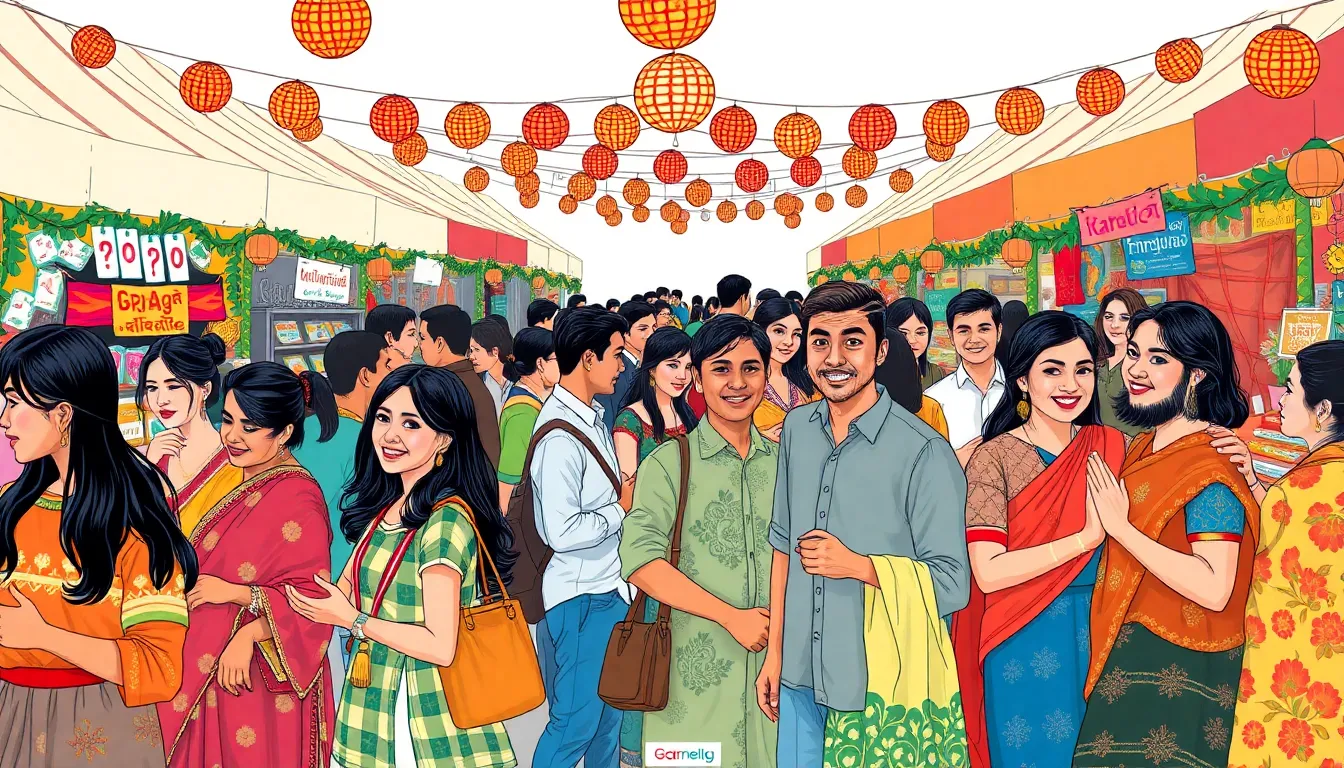Culture shapes the world around us, influencing everything from the food we eat to the music we enjoy. But what does it really mean to define cultural? It’s not just about traditions or languages; it’s a vibrant tapestry woven from shared experiences, beliefs, and values.
Table of Contents
ToggleUnderstanding Culture
Culture encompasses shared experiences, beliefs, and values that shape a community. It influences daily practices, traditions, and social interactions.
What Is Culture?
Culture represents a complex system of ideas, practices, and social behaviors. This system varies widely across different societies, impacting everything from art to etiquette. Communication styles, religious beliefs, and food preferences also fall under this definition. Understanding culture requires recognizing its dynamic nature, as it continues to evolve with each generation.
The Elements of Culture
Elements of culture include language, norms, values, and artifacts. Language facilitates communication and preserves cultural heritage. Norms establish expectations for behavior within a society, guiding interactions among individuals. Values reflect what a community considers important, often shaping decisions and priorities. Artifacts represent physical objects, such as clothing and tools, that reflect cultural identity and history. Each element plays a vital role in forming a cohesive cultural landscape.
Define Cultural

Cultural refers to the shared beliefs, practices, arts, and social norms of a particular group or society. It involves a wide range of elements that contribute to the identity and cohesion of communities.
Definitions and Interpretations
Culture encompasses various definitions based on context and perspective. In anthropology, culture represents the set of shared attitudes and values that influence social practices. Sociologists view culture as a collective experience shaped by historical contexts, while linguists consider it a system influenced by language and communication. Each interpretation underscores the complexity of culture, illustrating its role in shaping identities and influencing daily interactions. Understanding these different definitions highlights the richness of cultural dynamics across diverse societies.
Importance of Defining Cultural
Defining cultural plays a crucial role in understanding societal interactions. Clear definitions foster better communication, enhancing relationships within and between communities. They help identify and respect differences, promoting tolerance and cooperation. Additionally, cultural definitions influence fields such as education, policy-making, and global relations, guiding approaches to collaboration. Recognizing the importance of culture in shaping perspectives can lead to a more inclusive and harmonious society.
Cultural Awareness
Cultural awareness encompasses recognizing and understanding the diverse cultures that shape human interactions. It enables individuals to appreciate differences in beliefs and practices.
Benefits of Cultural Awareness
Recognizing cultural nuances enhances communication skills. Improved interactions lead to stronger relationships. Empathy develops as individuals understand perspectives shaped by different backgrounds. Organizations benefit from increased creativity and collaboration when diverse teams work together. Cultural awareness also reduces stereotyping and fosters mutual respect. Communities thrive when they embrace inclusivity and celebrate diversity. Educational settings see greater engagement and improved learning outcomes when cultural awareness is prioritized.
Fostering Cultural Awareness in Society
Promoting cultural awareness begins with education at all levels. Schools can integrate multicultural curricula that highlight various traditions and histories. Workshops can provide employees with training on cultural competency, helping businesses thrive in diverse environments. Community initiatives like cultural festivals encourage interaction among different groups. Social media plays a pivotal role in sharing cultural stories that promote understanding. Partnerships between organizations and cultural institutions advance public awareness and appreciation. Continuous dialogue around cultural issues fosters an inclusive society where differences are respected and valued.
Cultural Diversity
Cultural diversity enriches societies by incorporating various identities, perspectives, and practices. This blend enhances community dynamics and fosters innovation.
The Impact of Cultural Diversity
Cultural diversity leads to increased creativity in problem-solving. It encourages the sharing of unique viewpoints, which cultivates new ideas and approaches. Workplaces with diverse teams often report higher levels of employee satisfaction. Diversity allows individuals to learn from each other, enhancing skills through exposure to different cultural norms. Educational settings benefit as students engage with diverse perspectives, promoting critical thinking and collaboration. Countries that embrace cultural diversity experience stronger social cohesion. By appreciating varied backgrounds, societies become more resilient and adaptive to change.
Celebrating Cultural Differences
Celebrating cultural differences enhances social harmony. Cultural festivals showcase unique traditions, enabling communities to connect through shared experiences. These celebrations foster understanding and respect among individuals from various backgrounds. Businesses benefit by recognizing cultural holidays, which promotes inclusivity in the workplace. Schools can incorporate multicultural education, allowing students to appreciate diversity from an early age. Local communities thrive when they engage in activities that highlight different customs and practices. Restaurants featuring diverse cuisines serve as gathering places, encouraging conversations about cultural heritage.
Cultural understanding is essential for fostering a more inclusive and harmonious society. By recognizing the diverse beliefs and practices that shape our interactions, individuals and organizations can enhance communication and collaboration. Embracing cultural diversity not only enriches communities but also promotes creativity and innovation.
Investing in cultural awareness through education and community initiatives paves the way for stronger relationships and mutual respect. As societies continue to evolve, acknowledging and celebrating cultural differences will be vital for building a brighter future where everyone feels valued and understood.




